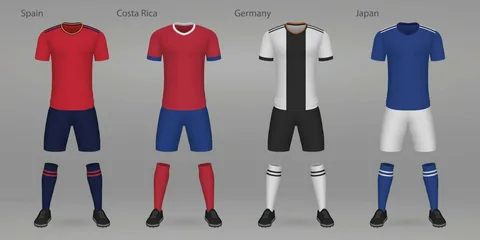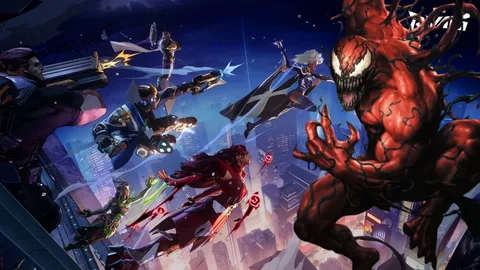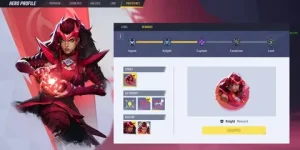Game
Factors Driving Mobile Gaming in Developing Countries

Introduction
Mobile gaming in developing countries is exploding. With cheap phones and better networks, millions of people now play games on their devices each day. This trend goes beyond fun and entertainment. It offers new jobs, boosts tech skills, and creates local businesses. In this article, we will look at the main factors driving mobile gaming in developing countries. You will learn why smartphone gaming adoption is soaring and how low-data mobile games make play possible even where internet speeds are slow. Let’s dive into this exciting world.
Affordable Smartphone Access
One of the biggest drivers of mobile gaming is the wide availability of budget smartphones. In many developing nations, you can find a capable Android phone for under $100. These devices come with enough power to run popular games like puzzle apps, casual racing titles, and simple strategy games.
- Lower Prices: Phone makers compete on cost, bringing down prices each year.
- Local Brands: Regional companies build devices tailored to local needs and budgets.
- Second-Hand Market: Refurbished phones give gamers an even cheaper entry point.
This affordability means more people can join the world of mobile gaming without breaking the bank.
Expanding Internet Connectivity
Fast, reliable internet was once a barrier to gaming. Now, mobile data networks have spread rapidly. 3G and 4G services cover most cities and even many rural areas. Governments and private firms invest in new cell towers and fiber lines to improve service.
- Data Plans: Operators offer low-cost data bundles, sometimes as small as 500 MB for a few dollars.
- Public Wi-Fi: Cafés, bus stations, and schools provide free spots to connect and play.
- Offline Modes: Many games include offline play, saving progress until the player returns online.
With more people online, smartphone gaming adoption continues to rise.
Rise of Low-Data Mobile Games
A key factor driving mobile gaming in developing countries is the growth of low-data mobile games. Developers optimize games to run smoothly on slower connections and use less than 10 MB per hour of play. These games include text-based adventures, simple puzzle games, and 2D arcade titles.
- Lightweight Downloads: Small file sizes mean faster downloads and less storage use.
- Efficient Updates: Patches target only changed assets to keep data use minimal.
- Local Servers: Hosting data closer to the player reduces lag and costs.
Low-data titles let more users enjoy gaming without worrying about data limits or high costs.
Localized Content and Language Support
Global game studios now realize the value of local players. They invest in translation, culturally relevant themes, and region-specific events. A few examples:
- Hindi and Swahili Versions: Games appear in local tongues, making text and voiceovers easy to understand.
- Local Festivals: In-game events tied to holidays like Diwali or Eid boost engagement.
- Regional Characters: Avatars and stories based on local folklore feel familiar and fun.
By speaking the player’s language—literally—developers foster deeper connections and longer play sessions.
Social Features and Community Building
Mobile games are social hubs for many players. They include chat rooms, friend lists, and competition leaderboards. Key social draws:
- In-Game Chat: Players team up in clans, share tips, and form bonds.
- Tournaments: Local and regional contests offer small prizes or recognition.
- Streaming Integration: Gamers broadcast live streams to friends on social apps.
This sense of community keeps players coming back and encourages friends to join, boosting overall smartphone gaming adoption.
Monetization Models Suited to Local Economies
Revenue for developers in these markets relies on flexible pricing:
- Ad-Supported Games: Players watch ads to earn rewards like coins or lives.
- Small In-App Purchases: Microtransactions under $1 allow players to upgrade characters or buy power-ups.
- Time-Limited Offers: Flash sales on virtual items drive quick purchases.
These models let gamers spend small amounts that fit local incomes, supporting game makers while keeping play affordable.
Impact of COVID-19 on Mobile Gaming
The pandemic changed how and where people play. Lockdowns and work-from-home rules pushed many to mobile games for distraction and social contact:
- New Players: First-time gamers tried simple apps to pass the time.
- Longer Sessions: Without commutes, people played for hours per day.
- Family Engagement: Parents and kids played together, increasing downloads of kid-friendly titles.
As a result, game downloads and revenue soared, and many players have stayed active even as restrictions eased.
Role of E-Sports and Local Tournaments
E-sports is no longer limited to PCs and consoles. Mobile e-sports leagues have sprung up in Karachi, Nairobi, and Manila:
- Prize Pools: Small cash prizes excite amateur competitors.
- Local Sponsors: Shops, brands, and telecoms sponsor events, offering gear or data bundles.
- Live Events: Finals held in community centers draw spectators and press.
These events legitimize gaming as a career path and strengthen local gaming ecosystems.
Government and Industry Support
Some governments recognize the economic potential of mobile gaming:
- Grants for Developers: Small loans help local studios create games.
- Tax Incentives: Lower taxes on digital products encourage investment.
- Digital Literacy Programs: Training in coding and design builds homegrown talent.
By nurturing local industries, countries hope to export games and build tech hubs that rival global giants.
Future Trends and Emerging Technologies
Several trends promise to drive mobile gaming even further:
- 5G Rollout: Faster speeds and lower latency enable cloud gaming and AR experiences.
- Progressive Web Games: Playable in browsers without downloads, saving space and data.
- Blockchain and NFTs: Ownership of in-game items on the blockchain could reward players in real money.
- AI Personalization: Games that adapt difficulty and content to each player’s skill level.
As these technologies mature, they will open new doors in developing markets.
Challenges to Overcome
Despite the optimism, barriers remain:
- Unequal Access: Some rural regions still lack reliable internet or electricity.
- Payment Barriers: Credit card low usage limits in-app purchase potential.
- Content Regulation: Local laws sometimes restrict violent or gambling-like content.
Industry stakeholders must work together—governments, phone makers, and developers—to bridge these gaps.
Conclusion
Mobile gaming’s surge in developing countries rests on a few key pillars: affordable devices, expanding internet, and low-data mobile games that fit local needs. Social features and local content keep players engaged, while flexible monetization models support developers. The COVID-19 pandemic and rising e-sports scene have fueled even more growth. Looking ahead, technologies like 5G and AI will drive new forms of play. By learning from these factors driving mobile gaming in developing countries, developers and investors can tap into a vast, growing market full of promise. Whether you’re a gamer, a developer, or a policy maker, understanding these trends is essential for riding the mobile gaming wave into the future.
Clothing
Impact of Soccer Uniform Design on Performance and Identity

Modern teams understand that appearance, comfort, and performance are deeply connected, and this is where soccer uniform design plays a vital role. A well-crafted uniform is more than just clothing; it represents unity, professionalism, and identity on the field.
From amateur clubs to elite-level teams, the right design influences confidence, mobility, and overall performance. Colors, patterns, fit, and fabric technology all come together to create apparel that supports athletes while also strengthening a team’s visual presence. As sports culture continues to evolve, uniforms have become a powerful blend of function and branding rather than a simple necessity.
The Meaning Behind Team Apparel
Team apparel has always carried emotional and symbolic value. A uniform tells a story about heritage, ambition, and belonging. Players feel a stronger connection to their team when they wear something that reflects their journey and goals.
Fans also associate themselves with these visuals, which helps build loyalty and recognition. Thoughtful design choices, such as balanced color combinations and modern silhouettes, ensure that a uniform looks timeless rather than outdated. When aesthetics align with comfort, the uniform becomes an extension of the athlete rather than a distraction.

Performance Starts With Fabric Innovation
Fabric selection is one of the most important elements in sportswear creation. Breathable, lightweight, and moisture-managing materials allow athletes to stay focused during intense moments. Advanced textiles reduce irritation, regulate body temperature, and improve flexibility.
Whether a match is played under harsh sunlight or in colder conditions, the right material adapts to the environment. Modern production techniques ensure durability without compromising comfort, allowing teams to rely on their uniforms throughout demanding seasons.
Basketball Style and Athletic Expression
Basketball apparel demands a unique balance of freedom and structure. Players require unrestricted arm movement, proper ventilation, and a fit that complements fast-paced action. This is why custom NBA basketball jerseys have become a preferred option for teams seeking individuality and performance together.
Customization allows teams to reflect their personality while ensuring players feel agile and comfortable on the court. A well-fitted jersey enhances movement and boosts confidence during competitive play.
Creative Freedom in Court wear Development
Designing court wear involves more than choosing colors and numbers. Visual rhythm, typography, and proportion all influence how a uniform is perceived. A refined approach to jersey basketball uniform design ensures that the final look feels modern and energetic without being overwhelming.
Clean layouts paired with subtle detailing create a professional appearance that holds up across different lighting and broadcast conditions. When creativity is guided by functionality, the result is apparel that performs as well as it looks.
Excellence in Production Standards
Behind every reliable sports uniform is a strong production process. Working with a trusted Basketball Uniforms Manufacturer ensures that quality control, stitching precision, and fabric consistency meet professional expectations.
Manufacturing expertise reduces errors and guarantees that each piece matches the approved design. Reliable production also allows teams to scale their orders without worrying about variations in size, color, or durability. This consistency is essential for maintaining a polished and unified team image.
Football Apparel Tailored for the Game
Football demands endurance, agility, and resilience, and uniforms must support these requirements. Teams today prefer custom soccer uniforms because they allow complete control over fit, color, and detailing.
Customization ensures that each team stands out while still meeting practical needs such as breathability and durability. Personalized elements strengthen team identity and create a stronger bond between players and supporters.
Trust and Originality in Match Wear
Authenticity has become increasingly important in modern sportswear. Players and fans alike value originality, which is why authentic soccer uniforms hold such significance. Authenticity reflects quality craftsmanship, accurate detailing, and professional standards.
Wearing genuine apparel boosts player confidence and assures supporters that the team values excellence both on and off the pitch. This sense of trust enhances the overall reputation of the club.
Global Approach to Football Manufacturing
A dependable Soccer Uniforms Manufacturer understands international quality expectations and diverse team needs. From youth academies to professional clubs, manufacturing expertise ensures that uniforms meet performance standards while respecting design intent.
Skilled production teams combine modern machinery with experienced craftsmanship to deliver consistent results. This balance allows teams to focus on performance, knowing their apparel is built to last.
Long-Term Value of Thoughtful Design
Investing in well-designed sportswear delivers long-term benefits. Durable construction reduces replacement costs, while timeless designs prevent the need for frequent visual updates. Teams that prioritize quality and comfort often see improved morale and stronger brand presence.
Uniforms become part of a team’s legacy, remembered alongside achievements and milestones. Thoughtful design ensures that apparel remains relevant and respected over time.
Final Thoughts
In today’s competitive sports environment, uniforms are more than functional garments; they are strategic assets. From concept to creation, every detail contributes to performance, identity, and pride.
Brands like Xsportswears understand the importance of combining innovation, comfort, and visual appeal to deliver complete solutions for teams. By focusing on quality craftsmanship and purpose-driven design, a well-made sporting kit becomes a symbol of unity and ambition that athletes wear with confidence.
Frequently Asked Questions
How does a well-designed uniform impact player performance?
A well-designed uniform improves comfort, mobility, and confidence, allowing players to focus fully on the game without distractions caused by poor fit or fabric issues.
Why is material selection important in team apparel?
High-quality materials help regulate body temperature, manage moisture, and enhance durability, which is essential for maintaining performance during intense and repeated use.
What should teams consider before finalizing a Soccer uniform design?
Teams should consider comfort, durability, visual identity, and long-term usability to ensure the uniform represents their values while supporting athletic performance.
Digital Development
Sports-Based Games: Merging Technology with Experience

Introduction
Sports and gaming have always shared a natural connection. Both are built on competition, strategy, teamwork, and the thrill of uncertainty. Over the years, technology has transformed this connection into something far more immersive and interactive. What once started as pixelated simulations on basic consoles has now evolved into highly realistic, data-driven, and socially connected gaming ecosystems.
Today, interactive sports-based games are not just about controlling a team on a screen—they are about experiencing the energy of a stadium, analyzing performance in real time, and engaging with a global community. This evolution reflects how digital platforms continue to redefine entertainment and user engagement.
Sky exchange demonstrates how modern platforms integrate live data and interactive features to enhance user engagement in sports-based digital environments.

From Arcade Simplicity to Realistic Simulations
In the early days, sports games were simple and straightforward. Basic graphics, limited controls, and repetitive gameplay defined the experience. Yet, these early versions laid the foundation for innovation.
Key Features of Early Sports Games:
- 2D graphics and pixel characters
- Basic scoring systems
- Limited team customization
- Single-player modes
As technology advanced, so did expectations. Developers began incorporating realistic physics, detailed player models, and authentic stadium environments. The focus shifted from “playing a game” to “experiencing the sport.”
The Rise of Real-Time Interaction
One of the biggest milestones in sports-based gaming has been real-time interactivity. Modern games are deeply connected to live sports events, statistics, and global audiences.
How Real-Time Features Changed the Game:
- Live score integration
- Dynamic updates based on real-world performance
- Online multiplayer competitions
- Instant feedback and analytics
Imagine watching a live match and simultaneously participating in a digital version influenced by real-time events. This level of synchronization makes the experience more engaging and emotionally connected.
The Role of Data and Analytics
Sports have always relied on statistics, but interactive gaming platforms have elevated this concept to a new level. Data now plays a central role in shaping user experiences.
Data-Driven Enhancements Include:
- Performance-based player ratings
- Strategic decision-making tools
- Predictive modeling systems
- Personalized dashboards
These features allow users to think like analysts, strategists, and coaches rather than just players. The experience becomes more intellectual and immersive, blending skill with insight.
Immersive Technologies: AR, VR, and Beyond
The integration of advanced technologies such as Augmented Reality (AR) and Virtual Reality (VR) has pushed interactive sports-based games into a new dimension.
What Immersive Tech Brings:
- 360-degree stadium views
- Realistic crowd simulations
- Gesture-based controls
- First-person gameplay perspectives
Instead of watching from the sidelines, users can now feel as if they are part of the action. These innovations bridge the gap between physical sports and digital interaction.
Social Connectivity and Community Engagement
Modern sports-based games are no longer isolated experiences. They thrive on community participation and social interaction.
Community-Driven Elements:
- Online tournaments
- Leaderboards and rankings
- Live chats and group discussions
- Collaborative team modes
This social aspect transforms gaming into a shared journey. Players from different countries can compete, collaborate, and celebrate victories together. The sense of belonging enhances engagement and retention.
Personalization: The New Standard
Personalization has become a defining factor in the evolution of interactive sports games. Platforms now adapt to user behavior and preferences.
Personalized Features Include:
- Custom team creation
- Adjustable difficulty levels
- Tailored content recommendations
- Achievement tracking systems
These options give users control over their experience. Instead of a one-size-fits-all model, the platform evolves with the player’s interests and performance.
The Impact of Mobile Gaming
Mobile technology has revolutionized accessibility. Sports-based interactive games are no longer restricted to consoles or desktops.
Benefits of Mobile Integration:
- On-the-go accessibility
- Quick match formats
- Push notifications for updates
- Seamless synchronization across devices
This shift has expanded the audience significantly. Whether commuting, relaxing at home, or traveling, users can stay connected to their favorite sports-based platforms anytime.
Gamification of Sports Engagement
Gamification elements have strengthened the connection between traditional sports and digital platforms. By incorporating rewards, challenges, and milestone achievements, platforms maintain user motivation.
Common Gamification Strategies:
- Daily challenges
- Points and reward systems
- Unlockable achievements
- Performance-based incentives
These features encourage consistent interaction and keep users invested over the long term.
Security and Transparency in Modern Platforms
As sports-based gaming evolves, trust and security become critical. Users expect transparent systems, secure transactions, and fair play mechanisms.
Essential Trust-Building Factors:
- Secure data encryption
- Verified user authentication
- Transparent rules and policies
- Responsible digital practices
Maintaining credibility ensures sustainable growth and long-term engagement in digital sports ecosystems.
The Future of Interactive Sports-Based Games
Looking ahead, the integration of artificial intelligence and machine learning is expected to further enhance personalization and predictive experiences. AI-driven commentary, adaptive gameplay mechanics, and smarter matchmaking systems are already shaping the next phase of innovation.
Interactive sports-based games are continuously redefining how users experience competition, strategy, and entertainment. As technology advances, the line between physical sports and digital interaction will become even more seamless, creating richer, smarter, and more connected experiences for global audiences.
Computer Electronic
Marvel Rivals: Understanding Proficiency and Character Levels
-
Business3 years ago
Cybersecurity Consulting Company SequelNet Provides Critical IT Support Services to Medical Billing Firm, Medical Optimum
-
Business3 years ago
Team Communication Software Transforms Operations at Finance Innovate
-
Business3 years ago
Project Management Tool Transforms Long Island Business
-
Business2 years ago
How Alleviate Poverty Utilized IPPBX’s All-in-One Solution to Transform Lives in New York City
-
health3 years ago
Breast Cancer: The Imperative Role of Mammograms in Screening and Early Detection
-
Sports3 years ago
Unstoppable Collaboration: D.C.’s Citi Open and Silicon Valley Classic Unite to Propel Women’s Tennis to New Heights
-
Art /Entertainment3 years ago
Embracing Renewal: Sizdabedar Celebrations Unite Iranians in New York’s Eisenhower Park
-
Finance3 years ago
The Benefits of Starting a Side Hustle for Financial Freedom

































